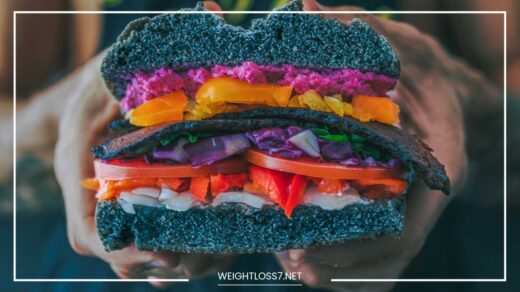How to Lose Weight Naturally

Lose Weight Naturally
How to Lose Weight Naturally: A Sustainable Guide for Lasting Change
Shedding pounds can feel like an uphill battle. Fads and quick fixes promise dramatic results, but often leave you feeling discouraged and depleted. The truth is, lasting weight loss is about creating sustainable habits that nourish your body and mind.
This guide explores natural strategies to achieve a healthy weight. We’ll delve into dietary changes, mindful eating practices, and exercise routines that promote long-term success.
Remember, weight loss is a journey, not a destination. Be kind to yourself, celebrate your progress, and enjoy the process of creating a healthier, happier you.
Diet: Your Body’s Fuel Source
What you eat significantly impacts your weight and overall health. Here’s how to make informed choices that fuel your body for sustainable weight loss:
-
Focus on Whole Foods: Prioritize whole, unprocessed foods like fruits, vegetables, whole grains, lean proteins, and healthy fats. These foods are packed with nutrients that keep you feeling satisfied and energized.
-
Embrace Protein Power: Protein is essential for building and maintaining muscle mass, which helps burn calories even at rest. Include protein sources like lean meats, fish, beans, lentils, tofu, and nuts in your meals and snacks.
-
Don’t Fear Healthy Fats: Healthy fats like avocados, nuts, seeds, and olive oil play a crucial role in satiety and hormone regulation. They also enhance nutrient absorption from other foods.
-
Fiber is Your Friend: Fiber keeps you feeling fuller for longer, reducing cravings and preventing overeating. Load up on fruits, vegetables, whole grains, and legumes to reap the benefits of fiber.
-
Limit Added Sugars: Added sugars in sugary drinks, processed foods, and sweets contribute to weight gain and health problems. Aim to drastically reduce your intake of sugary beverages and opt for naturally sweet fruits instead.
-
Mindful Salt Consumption: Excessive salt intake can lead to water retention and bloating. Be mindful of processed foods, condiments, and restaurant meals, which are often high in sodium.
Making Dietary Changes Sustainable
-
Small Steps, Big Results: Don’t overwhelm yourself with drastic changes. Start by making small, sustainable swaps. Replace sugary drinks with water, opt for whole-wheat bread instead of white, and add a side of vegetables to your meals.
-
Plan Your Meals: Planning your meals and snacks in advance helps avoid unhealthy choices when hunger strikes. Experiment with healthy recipes and find options you enjoy. Consider prepping some meals or snacks on the weekend to save time during busy weekdays.
-
Cook More at Home: Cooking at home allows you to control the ingredients and portion sizes. Explore new healthy recipes and involve family or friends in the process. Cooking together can be a fun and rewarding way to build healthy habits as a team.
-
Read Food Labels: Become familiar with food labels. Pay attention to serving sizes, calorie counts, sugar content, and ingredients. Look for products with a shorter ingredient list and prioritize whole foods over highly processed options.
-
Don’t Deprive Yourself: Restrictive diets often lead to cravings and binge eating. Allow yourself occasional treats in moderation. Practice mindful indulgence – savor a small portion of your favorite dessert and truly enjoy it, rather than mindlessly overeating.
-
Listen to Your Body’s Cues: Pay attention to hunger and fullness signals. Don’t skip meals entirely, as this can lead to overeating later. Eat when you’re hungry, and stop when you’re comfortably full.
Mindful Eating: Cultivating a Healthy Relationship with Food
Mindful eating involves paying close attention to the physical and emotional cues surrounding your eating habits. Here’s how to practice mindful eating:
-
Eat Slowly and Savor Each Bite: Put down your phone and distractions. Focus on the taste, texture, and aroma of your food. Chew thoroughly, allowing your body to register fullness signals. This helps prevent overeating.
-
Create a Pleasant Eating Environment: Sit down at a table, use real plates and utensils, and avoid distractions like television or phones. This allows for a more mindful eating experience.
-
Identify Emotional Eating: Sometimes, we eat to cope with stress, boredom, or sadness. Recognize emotional triggers and find healthier ways to manage your emotions, like exercise, journaling, relaxation techniques, or spending time with loved ones.
-
Practice Gratitude: Before each meal, take a moment to appreciate the food on your plate. Reflect on the journey the food took to get there, from the farmers who grew it to the people who prepared it. This practice can cultivate a sense of gratitude and encourage mindful eating.
The Power of Movement: Exercise for Weight Loss
Exercise plays a vital role in weight loss and overall health. Here are some tips to incorporate movement into your routine:
-
Find Activities You Enjoy: You’re more likely to stick with an exercise routine you find fun. Explore options like dancing, biking, swimming, hiking, team sports, yoga, or martial arts. Even activities like gardening or housework can contribute to your daily movement.
-
Start Slowly and Gradually Increase Intensity: Begin with manageable workouts, like 20-30 minutes of moderate-intensity exercise most days of the week. As your fitness improves, gradually increase the duration and intensity of your workouts. You can also incorporate high-intensity interval training (HIIT) for short bursts of intense exercise followed by rest periods.
-
Aim for at Least 150 Minutes of Moderate-Intensity Exercise Weekly: The Centers for Disease Control and Prevention (CDC) recommends at least 150 minutes of moderate-intensity aerobic activity or 75 minutes of vigorous-intensity aerobic activity per week. Strength training exercises are also crucial, aiming for at least two sessions per week that target all major muscle groups.
-
Make it a Lifestyle: Integrate movement into your daily routine. Take the stairs instead of the elevator, park further away from your destination and walk, or do bodyweight exercises during commercial breaks while watching TV.
-
Find a Workout Buddy: Having a workout partner can increase accountability and motivation. Find a friend or family member with similar fitness goals and schedule workouts together.
-
Track Your Progress: Monitoring your progress can be a great motivator. Track your weight, measurements, and how you feel after exercise sessions. Celebrate your achievements and milestones along the way.
Sleep for Success: The Importance of Rest
Often overlooked, sleep plays a vital role in weight management. When you’re sleep-deprived, your body produces more ghrelin, the hunger hormone, and less leptin, the satiety hormone. This can lead to increased cravings and overeating.
-
Aim for 7-8 Hours of Sleep Per Night: Most adults need 7-8 hours of quality sleep per night to function optimally. Prioritize creating a relaxing bedtime routine and establish a consistent sleep schedule.
-
Create a Sleep-Conducive Environment: Ensure your bedroom is dark, quiet, and cool for optimal sleep. Invest in blackout curtains, an earplug mask, and a comfortable mattress.
-
Limit Screen Time Before Bed: The blue light emitted from electronic devices can disrupt sleep patterns. Avoid screens for at least an hour before bedtime.
Stress Management: Keeping Your Hormones in Check
Chronic stress can lead to weight gain by elevating cortisol levels, a stress hormone that promotes fat storage. Here are some strategies to manage stress for sustainable weight loss:
-
Relaxation Techniques: Practice relaxation techniques like deep breathing, meditation, yoga, or progressive muscle relaxation to help manage stress and improve sleep quality.
-
Regular Exercise: As mentioned earlier, exercise is a great stress reliever. Physical activity helps reduce cortisol levels and promotes the release of endorphins, mood-boosting chemicals that can improve your overall well-being.
-
Mindfulness Practices: Mindfulness exercises like meditation or spending time in nature can help cultivate a sense of calm and reduce stress levels.
-
Social Support: Having a strong social support system can be a great buffer against stress. Surround yourself with positive and supportive people who encourage your health goals.
Beyond Weight Loss: Cultivating a Healthy Relationship with Food and Movement
Remember, weight loss is a journey, not just a destination. Focus on cultivating a healthy relationship with food and movement for long-term success. Here are some tips:
-
Focus on How You Feel: Shift your focus from weight loss to how healthy choices make you feel. Notice how nutritious foods energize you and regular exercise improves your mood and overall well-being.
-
Celebrate Non-Scale Victories: Don’t get discouraged if the weight doesn’t come off as quickly as you’d like. Celebrate non-scale victories like increased energy levels, improved sleep, stronger muscles, or better fitting clothes.
-
Make it a Lifestyle Change: View these changes as a lifestyle shift, not a temporary diet or exercise program. Aim to incorporate healthy habits into your routine for sustainable weight management and overall well-being.
-
Seek Professional Help: If you’re struggling with weight loss or have underlying health conditions, consult a registered dietitian or healthcare professional for personalized guidance and support.
Building a Sustainable Support System for Weight Loss
Shedding pounds can feel isolating, especially if you’re surrounded by unhealthy temptations or a lack of understanding. Building a supportive network can significantly increase your chances of success. Here’s how to create a support system for your weight loss journey:
-
Find an Accountability Partner: Having a friend, family member, or online buddy working towards similar goals can be a powerful motivator. Share your goals, challenges, and successes with each other. Celebrate milestones together and hold each other accountable for sticking to your plans.
-
Join a Support Group: Consider joining a weight loss support group, either in person or online. Connecting with others who understand your struggles can be incredibly encouraging. Share experiences, tips, and recipes, and learn from each other’s successes and setbacks.
-
Seek Professional Guidance: A registered dietitian or certified health coach can provide personalized guidance on nutrition, portion control, and creating a sustainable weight loss plan. They can also offer support and address any underlying health concerns that may be affecting your weight.
-
Leverage Technology: There are numerous weight loss apps and online resources available to help you track your progress, find healthy recipes, and connect with a supportive community. Explore these options and find tools that suit your needs and preferences.
-
Involve Your Family: If you have a family, discuss your weight loss goals with them and get their support. Involve them in healthier grocery shopping and meal planning. Encourage them to join you for walks or other physical activities to make it a family affair.
Addressing Emotional Eating and Mindful Eating Practices
Emotional eating can be a significant obstacle to weight loss. Here’s how to address it and cultivate mindful eating practices:
-
Identify Your Triggers: Recognize the emotions that trigger unhealthy eating habits. Are you reaching for comfort food when stressed, bored, or sad? Journaling can help you identify patterns and emotional cues.
-
Develop Healthy Coping Mechanisms: Find healthy ways to manage your emotions instead of turning to food. Exercise, relaxation techniques, spending time in nature, or talking to a friend can be effective coping mechanisms.
-
Practice Mindful Eating Techniques: Slow down and savor your food. Eat without distractions, focusing on the taste, texture, and aroma of each bite. Pay attention to your body’s hunger and fullness cues. Stop eating when you’re comfortably full, not stuffed.
-
Practice Gratitude: Before each meal, take a moment to appreciate the food on your plate. Reflect on the journey the food took to get there and the people who helped produce it. This practice can cultivate a sense of gratitude and promote mindful eating.
Staying Motivated for the Long Haul
Motivation can fluctuate throughout your weight loss journey. Here are some tips to stay motivated:
-
Set SMART Goals: Set Specific, Measurable, Achievable, Relevant, and Time-Bound goals. Instead of a vague goal of “losing weight,” aim to lose 1-2 pounds per week or be able to comfortably run a 5K within 3 months.
-
Visualize Success: Create a vision board with images that represent your health goals. This can be a physical board or a digital one. Visualizing your desired outcome can keep you motivated and focused.
-
Reward Yourself: Celebrate your milestones along the way. Reward yourself with non-food related incentives like a new outfit, a relaxing massage, or a weekend getaway when you reach specific goals.
-
Find Inspiration: Read success stories of others who have achieved their weight loss goals. Watch motivational videos or listen to podcasts about healthy living. Surround yourself with positive influences who inspire you to stay on track.
-
Focus on the Positive: Instead of dwelling on the number on the scale, focus on the positive changes you’re experiencing. Notice how you have more energy, improved sleep, or better fitting clothes.
Final Word: A Sustainable Approach to Weight Loss
Remember, weight loss is a marathon, not a sprint. By focusing on creating sustainable habits, building a supportive network, and developing a healthy relationship with food and movement, you can achieve lasting success. Embrace the journey, celebrate your progress, and enjoy the process of becoming a healthier and happier you.

















